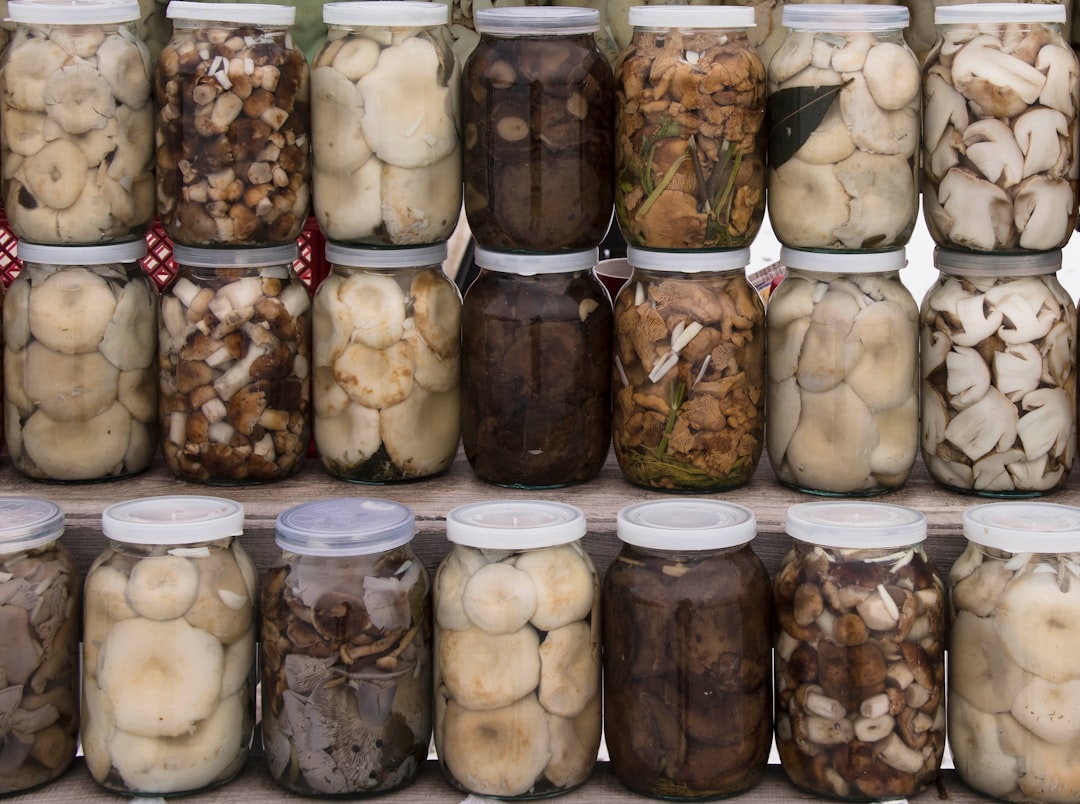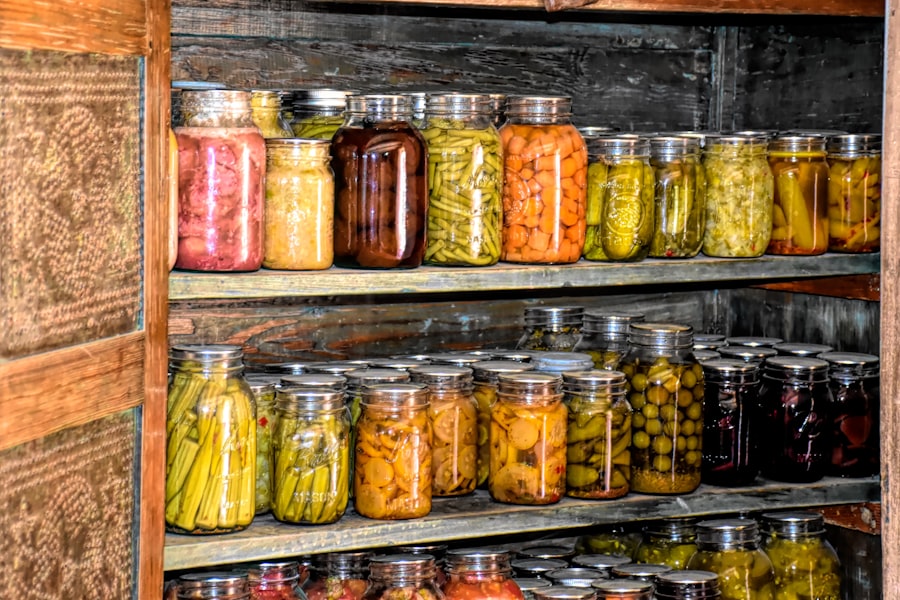Pickles: The Great Debate – Are They a Fruit or Vegetable?

Pickles have been a staple in diets and cultures around the world for centuries. These tangy, crunchy treats are loved by many for their unique flavor and versatility. Whether enjoyed on their own as a snack or used as a condiment to enhance the taste of a meal, pickles have become an integral part of our culinary traditions. But what exactly are pickles, and why do they hold such significance in our diets and culture?
Key Takeaways
- Fruits and vegetables are defined by their botanical characteristics.
- Pickles are a controversial food item due to their classification as a fruit or vegetable.
- Pickles have nutritional value, including probiotics and antioxidants.
- Pickles are used in culinary traditions around the world, from kimchi to sauerkraut.
- Pickles can be enjoyed as a snack or condiment, adding flavor and texture to meals.
The Botanical Definition of Fruits and Vegetables
To understand the controversy surrounding pickles, it is important to first delve into the botanical definition of fruits and vegetables. In botanical terms, fruits are the mature ovaries of flowering plants that contain seeds, while vegetables refer to any edible part of a plant, such as leaves, stems, roots, or bulbs. By this definition, pickles would be considered vegetables since they are made from cucumbers, which are the fruiting bodies of the cucumber plant.
The Controversy Surrounding Pickles – Are they fruits or vegetables?
Despite the botanical definition, there is still much debate over whether pickles should be classified as fruits or vegetables. This controversy stems from the fact that pickles undergo a transformation during the pickling process, where cucumbers are soaked in a brine solution or vinegar to preserve them. This transformation alters the texture and taste of the cucumbers, making them more akin to vegetables than fruits.
The Nutritional Value of Pickles – High in probiotics and low in calories
| Nutrient | Amount per 100g |
|---|---|
| Calories | 11 |
| Protein | 0.9g |
| Fat | 0.2g |
| Carbohydrates | 2.3g |
| Fiber | 1.2g |
| Sodium | 863mg |
| Probiotics | Yes |
Regardless of whether pickles are classified as fruits or vegetables, they offer numerous health benefits. Pickles are low in calories and fat, making them a great snack option for those watching their weight. They are also high in fiber, which aids in digestion and helps maintain a healthy gut. Additionally, pickles are a good source of vitamins and minerals, such as vitamin K, which is essential for blood clotting, and potassium, which helps regulate blood pressure.
Pickles in Culinary Traditions – From kimchi to sauerkraut
Pickles have a long history in culinary traditions around the world. In Korea, kimchi is a staple side dish made from fermented vegetables, such as cabbage and radishes. It is known for its spicy and tangy flavor and is often enjoyed with rice or used as a topping for various dishes. In Germany, sauerkraut is a popular pickle made from fermented cabbage. It is often served alongside sausages or used as a topping for hot dogs. These examples highlight the diverse ways in which pickles are incorporated into different cuisines.
Pickles as a Snack or Condiment – Adding flavor and crunch to meals

Pickles are not only enjoyed on their own as a snack but also used as a condiment to add flavor and crunch to meals. They can be sliced and added to sandwiches or burgers for an extra burst of tanginess. Pickle relish is commonly used as a topping for hot dogs and hamburgers, adding a sweet and tangy element to these classic dishes. Additionally, pickles can be chopped and added to salads or used as a garnish for tacos and nachos. The versatility of pickles makes them a popular choice for enhancing the taste of various dishes.
The Science of Pickling – The process of fermentation and preservation
The process of pickling involves fermenting vegetables in a brine solution or vinegar to preserve them. This fermentation process creates an acidic environment that inhibits the growth of harmful bacteria while promoting the growth of beneficial bacteria. The beneficial bacteria, known as probiotics, help support a healthy gut by aiding in digestion and boosting the immune system. The fermentation process also enhances the flavor and texture of the vegetables, giving them their distinct tanginess and crunch.
Historical Significance of Pickling – From ancient civilizations to modern times
Pickling has a long history that dates back to ancient civilizations. The process of pickling was developed as a means of preserving food for long periods, especially during times of scarcity or when fresh produce was not readily available. Ancient Egyptians, Greeks, and Romans all practiced pickling as a way to preserve fruits and vegetables. In fact, the word “pickle” is derived from the Dutch word “pekel,” which means brine. Pickling techniques were later brought to Europe by explorers and traders, where they became an integral part of European cuisine.
The Role of Pickles in Modern Cuisine – From gourmet restaurants to home kitchens
In modern cuisine, pickles have taken on a new role beyond just preservation. They are now seen as a gourmet ingredient that adds complexity and depth to dishes. Many high-end restaurants feature pickled vegetables as part of their menu, showcasing the versatility and creativity that can be achieved with pickling. Additionally, pickling has become a popular trend in home kitchens, with many people experimenting with different flavors and combinations. Homemade pickles allow individuals to customize their flavors and create unique combinations that suit their taste preferences.
Pickles in Popular Culture – From pickle juice shots to pickle-flavored snacks
Pickles have also made their mark in popular culture, with various trends and products inspired by their tangy flavor. Pickle juice shots have gained popularity among athletes and fitness enthusiasts due to their potential benefits in preventing muscle cramps. Additionally, pickle-flavored snacks, such as chips and popcorn, have become a hit among those looking for a unique twist on traditional snacks. The popularity of these products highlights the widespread love for pickles and their ability to captivate our taste buds.
The Future of Pickling and Its Place in Our Diets – The rise of fermented foods and the potential health benefits
As people become more health-conscious and seek out natural and nutritious foods, the popularity of pickling is expected to rise. Fermented foods, such as pickles, are gaining recognition for their potential health benefits. The probiotics found in fermented foods have been linked to improved digestion, enhanced immune function, and even mental health benefits. As a result, pickles and other fermented foods are being incorporated into diets as a way to promote overall well-being.
Conclusion and call to action to try pickles in new ways.
In conclusion, pickles hold a significant place in our diets and culture. Whether enjoyed as a snack or used as a condiment, pickles add flavor and crunch to meals. They are also packed with nutritional value, high in probiotics, and low in calories. The process of pickling has a long history that spans across ancient civilizations to modern times. Pickles have evolved from a means of preservation to a gourmet ingredient that is celebrated in high-end restaurants and home kitchens alike. As we look towards the future, pickles and other fermented foods are expected to play an even greater role in our diets due to their potential health benefits. So why not give pickles a try in new and creative ways? You may just discover a new favorite flavor combination that will tantalize your taste buds.
If you’re curious about the eternal debate of whether pickles are a fruit or a vegetable, you might find this article on Lawn World quite interesting. It delves into the fascinating world of pickles and provides insights into their classification. To explore more about this topic, check out the article “Are Pickles Fruit or Vegetable?” on Lawn World’s website.
FAQs
What are pickles?
Pickles are cucumbers that have been preserved in vinegar or brine solution.
Are pickles fruits or vegetables?
Technically, pickles are vegetables because they are made from cucumbers, which are classified as vegetables.
What is the difference between fruits and vegetables?
Fruits are the edible part of a plant that contains seeds, while vegetables are the edible parts of a plant that do not contain seeds.
Can pickles be considered a fruit?
No, pickles cannot be considered a fruit because they do not contain seeds and are not the edible part of a plant that contains seeds.
What are some health benefits of pickles?
Pickles are low in calories and high in vitamin K, which is important for bone health. They also contain antioxidants and probiotics, which can improve digestion and boost the immune system.
Are all pickles made from cucumbers?
No, pickles can be made from a variety of vegetables, such as carrots, beets, and green beans.



